The previous article had been introduced the new technologies of Bluetooth v3.0 + HS and Bluetooth v4.0 + LE, so we will realize that Bluetooth® wireless technology is making big breakthroughs in new markets. Next, let’s see how the Bluetooth SIG can help your company find new opportunities for your products.
Basically, the major test of Bluetooth® certification can be divided into three dimensions, including
1. Radio Frequency:
- To test the electric property, power, modulation and phase converter of Transmitter.
- To test the sensitivity and anti-interference ability of Receiver.
2. Protocol:
- To test the capacity of Protocol by verifying the language communication and command response accuracy
3. Profile:
- To verify the relevant specifications, protocol and interoperability according to different purposes.
The above tests all have its corresponding test items which are set based on product categories and declared function. And the execution of each test must be in accordance with Test Case Reference List (TCRL) published by Bluetooth SIG. TCRL defines the types of test case under conformance test and interoperability test which are required for certification. The test cases can be divided into the following four categories:
- Category A:
The test case is a mandatory testing and must be performed by an accredited Bluetooth® Qualification Testing Facility (BQTF).
- Category B:
The test case can be performed with/without a recognized BQTF, but it must use approved equipment to test, and submit test data as test evidence.
- Category C:
The test case must be performed with certified products, but no test evidence is required. Only needs self declaration.
- Category D:
The test case is preliminary or about to be retired. It has no official qualification value so no test is required.
As mentioned above, we can realize that there are many details must be noted regarding Bluetooth® certification test cases. Moreover, the procedure of Bluetooth® certification becomes more complicated than ever before because of the quantities of Bluetooth versions and the divergence of Bluetooth specifications.
How to determine which Bluetooth® specification your products belong to? The Qualified Design Listings (QDLs) developed by Bluetooth SIG can help. QDLs defines the types of Bluetooth® devices, including Controller Subsystem, Host Subsystem, Profile Subsystem, Component, and End-Product. These devices are regarded as different Bluetooth® device specifications upon the different versions adopted by their components. Figure 3, which shows a decision table of Bluetooth device specifications developed by Bluetooth SIG, can help the manufacturers on how to determine which Bluetooth® version their products belongs to. However, because there are plenty of possible combination in devices, it is still difficult to identify the right version even with the decision table.
| Figure 3: The partial decision table of Bluetooth® device specifications. (Source: Bluetooth SIG) |
|
|
Other than the difficulties of version identification, there are also many restrictions and regulations while the practical certification test are performed. Take the certification of Bluetooth v3.0 + HS as an example; the subject must conform to the following precondition for application:
- Bluetooth controller must be Bluetooth v2.1+EDR or Bluetooth v3.0.
- WLAN 802.11b/g controller must be Wi-Fi certified, and follows Bluetooth 3.0 Host Stack structure and 802.11 PAL protocol.
As to Bluetooth v4.0 + LE, because its Bluetooth® architecture is different from legacy ones in the physical layer, protocol layer and application layer; also, Bluetooth v4.0 + LE has single-mode and dual-mode, the certification requirement is much more different from the past.
BQE-the powerful assistant for the application of Bluetooth® certification
Both the diverse regulations and sustainable technical updates cause the manufacturers much trouble while seeking Bluetooth certification; for this reason, it highlights the value and importance of the Bluetooth® BQE (Bluetooth® Qualification Expert). The professional Bluetooth BQE is recognized by Bluetooth SIG, and its main mission is providing the consultation for Bluetooth certification. When the device manufacturers want to get certification for their products, they can nominate a Bluetooth BQE for QDL registration. The Bluetooth devices which are certified and finished the QDL registration by a Bluetooth BQE will not be audited within three years, and it also represents the trust of Bluetooth SIG for the profession of Bluetooth BQEs.
Figure 4 shows the procedures of Bluetooth® certification of Bluetooth SIG. Based on the procedures, Allion Test Labs can provide many consultations which include:
- The consultation and technical support about the specification and version of Bluetooth® device.
As mentioned above, the difficulties of Bluetooth® version identification is that it’s hard for the manufacturers to identify the Bluetooth® versions of their products even with the decision table; in this case, they need the professional assistance from a reliable Bluetooth® BQE.
- Test item evaluation including the required test projects, test period and test fee.
Bluetooth® certification test is very complicated, especially the test cases may be varied upon the types and controller versions of each device, the Bluetooth® specifications, and the regulations of the present TCRL. Thus, in order to avoid the misjudgement that might cause unnecessary retest, The mandatory test cases must be confirmed before practical testing. Otherwise, BQE can pre-estimate the period required and predict the certification test fee to assist the manufacturers in schedule and budget control.
- Bluetooth® documentation consultation and review support
During the process applying for Bluetooth® certification, there are many documents and forms must be completed; for example, the manufacturers need to fill out the Protocol/Profile Implementation Conformance Statement (PICS) which includes all applicable functions of Bluetooth® devices. Also, all features stated in PICS must be tested with the regulations of Bluetooth SIG. And BQE hereby stands a role to assist the manufacturers in filling out relevant documents which contents should conform to actual situation and test regulations. In addition, BQE can also assist the manufacturers in developing the test plan or reviewing the applicability of the test plan to avoid the possibility of application rejection or errors found in following audit.
- Find suitable Bluetooth® Qualification Test Facility (BQTF)
Although all BQTF are recognized by Bluetooth SIG; in addition to execute the certification test, each BQTF has difference service coverage, amount of equipments and the ways of schedule arrangement. Thus, it will be the most time-saving way to choose suitable BQTF through BQE.
- Problems debugging and issue identification
Besides consulting support before testing, Bluetooth SQE can also provide problem debugging and issue identification support based on the test result. Due to the regulations of Bluetooth SIG, BQE and BQTF must belong to different executive departments, and often different institutions, to maintain the independence and reliability of BQE.
- Test Result Review
To ensure that the test result conformed to the regulations and the content of submitting PICS, BQE is able to review the result after testing to reduce the probability of rejection by Bluetooth SIG.
- Upload the result of test (TDU)
BQE will help the manufacturers upload the TDU to Bluetooth SIG for further examination. This action will be specified and represents an initial review is done by BQE.
- Qualified Design Listings and Qualified Design ID
Continuing the previous description of the BQE services, the ultimate goal of the manufacturers is to make the device pass the certification test, list in QDLs, and get the QDID. All above are also the consulting ranges of BQE.
| Figure 4: The procedures of Bluetooth® certification.(Source: Bluetooth SIG) |
|
|
In sum, BQE plays an important role in the entire certification procedure. From the membership application, test plan submission, certification test execution to product listing, BQE can provide substantial technical support. Therefore, BQE is considered the best approach for most manufacturers seeking consultant and troubleshooting service.
The spectacular innovation of Bluetooth® technology
Diversified developments of Bluetooth® technology attempt to create a more convenient environment for consumers, so that they can enjoy much easier, simpler and faster life applications. For the manufacturers, the precondition is to ensure the products are conformed to Bluetooth® specification with high interoperability. All above have to depend on the endorsement of Bluetooth® Qualification Test, and further the device interoperability test.
Allion Test Labs is a global engineering service and validation consulting firm conducting certification, interoperability, performance and compatibility testing services for companies all over the world. In addition to provide BQE service and support, Allion Test Labs prepares a large number and variety of Bluetooth® devices to satisfy the demand for Bluetooth® interoperability test in the market today. In the future, Allion Test Labs will look forward to help more manufacturers be certified and provide consumers with higher quality of Bluetooth® products.















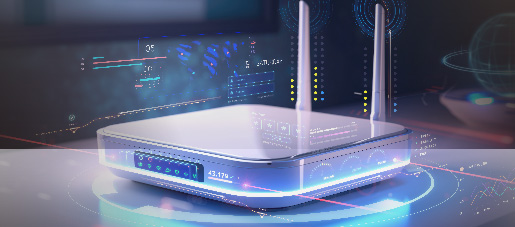
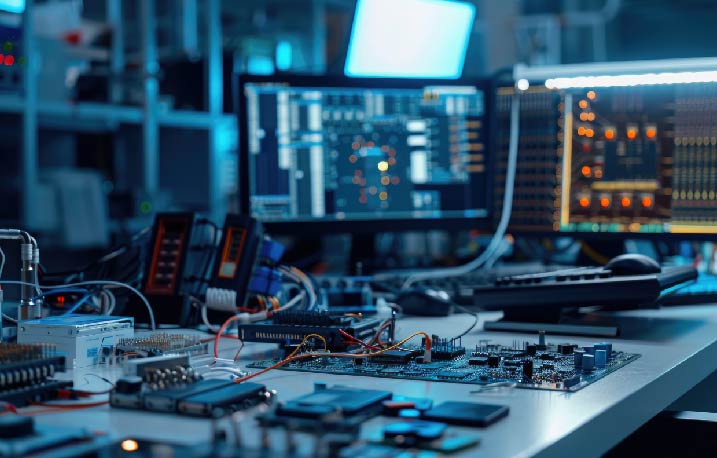







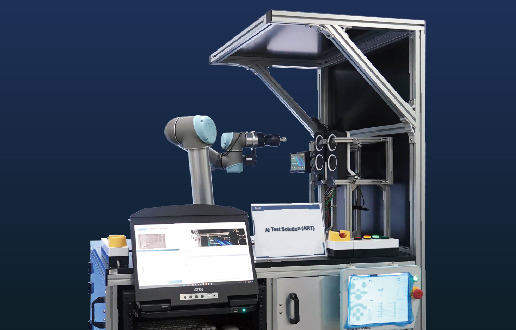
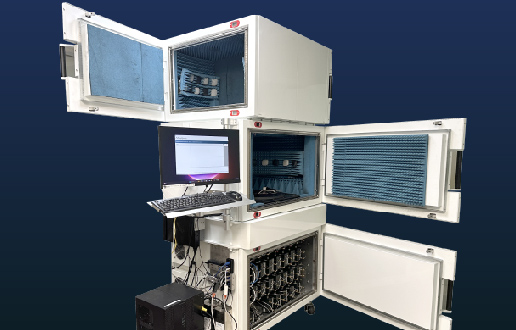
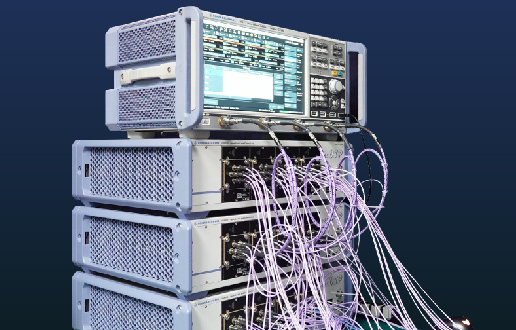
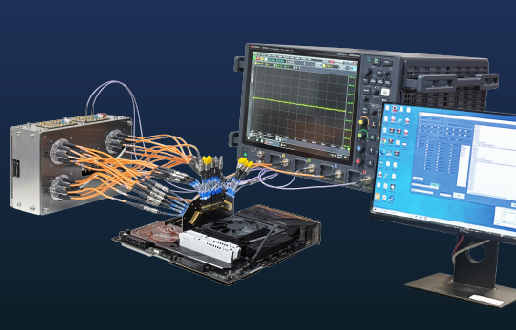
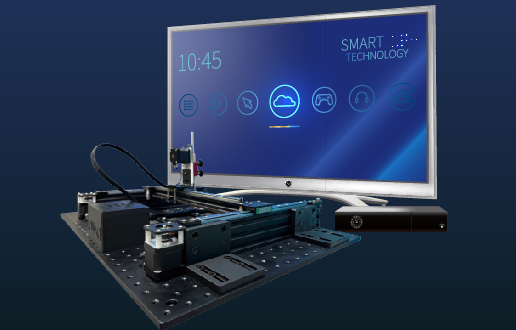








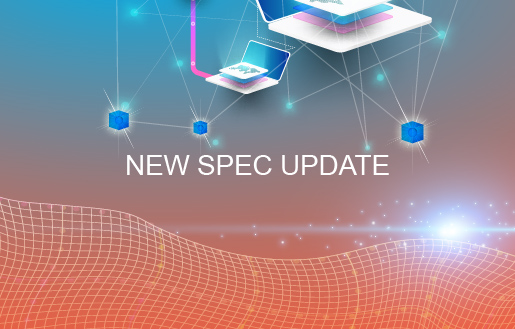

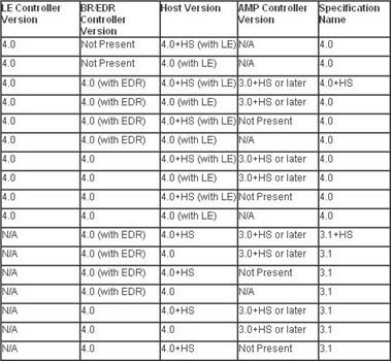
![clip_image002[8] clip_image002[8]](https://www.allion.com.tw/wp-content/uploads/20210118/technical-direct/wp-content/uploads/2012/01/clip_image0028_thumb1.jpg)